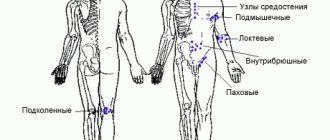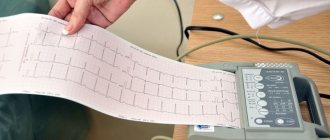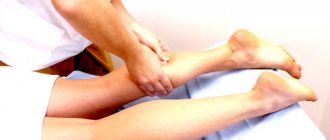12 April 2021
51379
0
3.1 out of 5
Numbness or hypoesthesia of the fingers is a rather unpleasant situation, which can be either a consequence of physiological reasons or a sign of various types of diseases. Therefore, if this symptom persists for an hour or more, and there is no improvement in rubbing your hands, clenching and unclenching your fists, you should consult a doctor. He will help you understand the reasons for its appearance and, if necessary, prescribe the necessary treatment. This will be the key to detecting pathology at an early stage of development and the success of therapy, and will also help to avoid aggravation of the situation and eliminate the risk of complications. After all, it is not so much the numbness of the fingers that is dangerous, although it can cause significant difficulties in performing everyday tasks, but the consequences of the lack of treatment for the diseases that provoked its occurrence.
Why do my hands go numb?
Doctors believe that if a person is young, the cause is in the nervous system, and if an elderly person, it is in the blood vessels or endocrine system.
Are common
In most cases, both hands may go numb due to illness.
Household
The reasons for numbness are simple - a person sat in an uncomfortable position, which pinched the nerves and blood vessels. This disrupted blood flow and impulse transmission. This occurs most often in the following cases:
- The man raised his arms above his chest.
- He was carrying a heavy bag.
- Wears tight clothes.
- Performs work manually.
- Sleeps on one side.
If negative factors are eliminated in a timely manner, the discomfort will also disappear. But if it becomes a habit, chronic diseases may appear.
Problems with the circulatory system
Blood enters the arms through the aortic arches, passing through the chest cavity. The following arteries are found in the arm:
- Radial.
- Elbow.
- Palmar.
There are many small vessels in the palm. And if some stop functioning, others replace them. If the body is healthy, sensitivity will be restored quickly.
But if pathologies are present, some symptoms last a long time. Vascular thrombosis is considered a dangerous disease. If the blood clot is in the artery that supplies the arm, the person will lose sensation from the fingers to the entire arm.
Numbness may result from vascular aneurysms. These are small formations that fill with blood, pinching the nerves. Another disease is vasopathy or angiopathy. The tone of the vascular walls decreases, the lumen narrows, and blood circulation is disrupted. This causes ischemia. The tissues that feed from these vessels lack oxygen.
Lack of vitamins
Numbness may occur if the body does not have enough vitamin B or minerals. At the same time, a person quickly gets tired, and his memory deteriorates. And if there is not enough vitamin A and E, the performance of bone marrow cells is impaired, and the development of red blood cells and other blood cells slows down.
Atherosclerosis
This is a disease in which cholesterol accumulates in the blood vessels. Lipids do not allow normal blood circulation. The symptoms of the disease are as follows:
- Cramps when relaxing.
- Insomnia.
- Itching and burning.
Hands look pale and nails become thicker. Hair density decreases.
Raynaud's disease
A common disease in women. The small arteries of both arms are affected. The disease usually occurs in car drivers and pianists.
Numbness appears as a result of spasms in the blood vessels. The skin turns pale, becomes colder, and sensitivity worsens. As soon as the spasm passes, the skin returns to its original state. But relapses are possible, sometimes every day.
Herniated discs
This can also be a cause of numbness. If a person experiences numbness in his fingers, changes occur in the neck area. There are signs by which a hernia can be identified:
- Arms and shoulders hurt.
- Blood pressure rises.
- My head is spinning.
Metabolism problems
Typically the causes are the following diseases:
- Diabetes.
- Cholesterol deposition.
- Lack of calcium and potassium.
In the latter case, bruises appear on the person’s body, and the wounds do not heal well.
Nerve problems
The hands have many nerves that control sensation. The system contains the following nerves:
- Elbows.
- Radiation.
- Musculocutaneous.
- Axillary.
- Median.
If nerve function is impaired, impulses are transmitted more slowly. There may also be pain in the arm or a burning sensation.
Carpal tunnel syndrome
Neuralgic disease, when the fingers go numb and the hand hurts. The cause of the disease is compression of the median nerve between the elements that form the wrist and hand. Often found in older women.
Diabetic neuropathy
Another disease that causes numbness in your hands is diabetes. At the same time, a person may feel tingling in the limbs, cramps, and muscle weakness. Sometimes severe pain appears in the muscles, similar to an electric shock.
Osteochondrosis
When the spinal cord nerves are compressed, numbness may occur.
Stroke
If a cerebral artery ruptures or thrombosis occurs, there is a risk of stroke. Usually a person loses sensitivity in the limb for which the damaged hemisphere is responsible. First, the little finger and ring finger go numb. A stroke can also be identified by other symptoms:
- Muscle weakness.
- Difficulty breathing.
- Incomprehensible speech.
- Deterioration in coordination of movements.
- Dizziness.
- Increased pressure.
- Numbness of fingers.
A numbness in the finger may also indicate an illness:
- Little finger of the left hand – heart problems, for example, heart failure.
- Unnamed - compression of the nerves in the elbow area. Perhaps they are injured.
- Thumb. Osteochondrosis or vitamin deficiency.
- Pointing. Diabetes mellitus, joint inflammation or diseases of the endocrine system.
- Average. Raynaud's disease or spinal diseases.
Numbness can also occur with fungal infections.
Chronic kidney disease
Uremia may develop if the kidneys are affected. Toxins begin to accumulate in the blood, which affects the nerves. As a result, the limbs go numb. If the disease is advanced, only an organ transplant will help.
Injury
Hand numbness can occur after injury:
- Tendon rupture.
- Stretching.
- Fracture.
Injuries usually result from frostbite or shock. Blood circulation is disrupted, which leads to symptoms.
Other diseases
There are other diseases that can cause numbness in the hands. For example, HIV, which activates an infection that affects the nerves.
Treatment and prevention of paresthesia
If you are unable to see a doctor soon, try the following self-help techniques:
- periodically warm up your arms;
- make hand baths from warm water with herbal decoctions or essential oils.
Proper nutrition and taking vitamins also help normalize hand sensitivity. However, for final recovery, diagnosis of the causes of numbness and proper treatment are required. If paresthesia is caused by a violation of local circulation, then, as a rule, massage and therapeutic exercises are recommended. For diseases of the spine, the problem is solved by taking medications (anti-inflammatory drugs, analgesics, chondroprotectors and others), physiotherapy, massage and exercise therapy. For vascular pathologies, surgical treatment is used in case of blockage of a vessel. For conservative treatment, medications (vasodilators, drugs to reduce blood viscosity and improve microcirculation) and physiotherapy can be used. No one is immune from paresthesia and inflammation of the finger, but you can reduce the risk of their occurrence by adhering to the following recommendations:
- avoid bad habits;
- exercise regularly to strengthen the spinal muscles;
- control blood pressure;
- eat right, do not get carried away with consuming fried, smoked and salty foods;
- If any kind of ailment occurs, promptly contact medical specialists.
All these measures will help you avoid problems with finger sensitivity and maintain healthy hands into old age.
Numbness of the left hand
Paresthesias are very dangerous, since they can appear due to diseases of the cardiovascular system.
Pre-infarction state
The left arm may go numb if a person has angina. The provoking factors are as follows:
- Smoking.
- Wrong nutrition.
- Stress.
- Fatty and spicy foods.
The symptom begins with the ring finger. Then he moves to the little finger.
There are other symptoms that may indicate a pre-infarction condition:
- Pain in the heart, radiating to the collarbone or jaw.
- Anxiety, cold sweat, fear of death.
- Weakness.
- Insomnia.
- Dizziness.
Diagnostics
Conducted individually, the search begins with excluding the most dangerous conditions. According to indications, the following studies may be prescribed:
- Electroneuromyography (ENMG of the upper extremities)
- duplex scanning of arteries and veins of the upper extremities
- X-ray of the cervical spine
- Magnetic resonance imaging of the cervical spine, brain, joints
- blood chemistry;
A specific list of diagnostic procedures is determined by the attending physician based on clinical examination data. Sometimes a diagnostic search leads to the discovery of diseases that a person did not even suspect about.
How to treat numbness
First, the doctor must do an examination. It's best to see a therapist. Tests are ordered. Depending on the results, the patient may be referred to one of the following specialists:
- Neuropathologist.
- Endocrinologist.
- Phlebologist.
After this, accurate diagnostics are performed in the form of MRI, electrocardiogram and x-ray.
Treatment also depends on the source of the disease. If the pathology is associated with the musculoskeletal system, massage and therapeutic baths are prescribed. Medicines also prescribed:
- Gel, ointment or cream.
- Painkiller.
- Anti-inflammatory drugs that do not contain steroids.
If the cause of numbness is a lack of vitamins, it is necessary to take a series of vitamins and minerals based on the elements that the body needs.
Note! Some vitamins should only be taken in combination with others.
Traditional therapy can also be effective; it complements the main treatment. For example, for kidney disease and diabetes, a diet is prescribed, and for injuries, immobilization is prescribed.
Determining the causes of paresthesia
If such a symptom occurs, consultation with a therapist or neurologist is necessary. In the future, you may also need the help of an angiologist, vascular surgeon and cardiologist. Diagnostic measures will help determine the reason why your fingers are constantly numb and prescribe effective treatment. If, in addition to numbness, something else bothers you, during the examination, list to the doctor all the accompanying disorders: tingling, soreness, coldness in the hands. Based on your medical history, you will be given a preliminary diagnosis and additional diagnostics will be prescribed:
- X-ray, MRI or CT;
- electroencephalography;
- angiography;
- lab tests;
- and other studies.
Emergency
You need to pay attention to numbness in your hand, especially if it happens suddenly. This may be a signal of a dangerous illness - thrombosis, stroke or heart attack. There are signs that may indicate the likelihood of these diseases:
- The numbness is constantly increasing.
- The pain in the arm intensifies.
- Increases blood pressure.
- Speech is impaired.
- Facial asymmetry.
- Paralysis.
- Pain radiating to the jaw and back.
- Feeling of tightness in the chest.
- Dyspnea.
- Nausea and vomiting.
When should you see a doctor?
In most cases, diseases that cause numbness are not life-threatening. However, some conditions require immediate consultation with a doctor, an accurate diagnosis and appropriate treatment.
It is urgent to see a specialist if numbness is accompanied by:
- limited mobility of fingers, arms or legs;
- sudden weakness, dizziness;
- urinary and fecal incontinence;
- speech disorders and impaired ability to move.
It is also unacceptable to postpone a visit to the doctor if numbness occurs after an injury in the back, neck or head.











